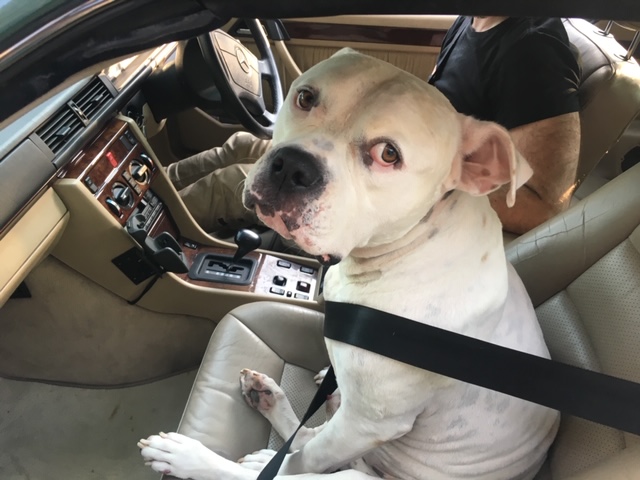While the younger version of your family dog may have been ready to bounce out the door and hit the road at a moment’s notice, your senior pet may not be so keen on the hassle and bother of travel adventures. This can be particularly true for aging dogs with mobility issues, chronic pain, or other health conditions that can be exacerbated by stress.
Before hitting the road with your silver furred companion, make sure to add these items to your trip planning checklist:
Vet Checkup Before the Journey
If you have an older dog who will be joining you on your summer holiday this year, consider scheduling a vet check up prior to your departure. There are several great reasons to add this slight inconvenience to your travel planning and prep.
First, if your senior dog is taking any medications, including those for flea and tick control, you can make sure that you will have plenty to make it through your trip. Second, your vet is likely to want to be sure your furry friend is up to the stresses of travel by air or car. Some of our aging dogs might be better off staying at home and your vet should weigh in on that decision.
A third reason to stop in at the vet prior to your holiday is that they may be willing to prescribe a sedative to help your dog relax during a long car ride or flight. This can make a huge difference when it comes to driving long distances across Australia, keeping your travels smooth and carefree.
Fully Investigate Stay at Home Options
If you suspect that your older pup might just prefer to stay closer to home, it might be time to investigate other options for care during your holiday.
For example, hiring a personal pet sitter to visit your home several times a day may be the least stressful option for your pooch. Booking a few visits prior to your trip will help your dog feel safe and secure when your pet sitter comes to provide a potty break, a short walk, and some loving pets.
Other options may be a nearby dog kennel or doggy daycare center. Be advised that most of these services require that you plan in advance, booking at least one day prior to your travels to assess your dog for fit to be joining other dogs in group play activities. In addition, these facilities will most likely require up to date vaccinations. For example, many will require proof of a recent Bordetella (Kennel Cough) vaccination prior to booking a stay.
Carefully Consider Pet Friendly Accommodation
Although finding a pet friendly hotel is obviously important, many senior dogs need their owners to go the extra mile to make sure their needs will be met. One of the most important things you can do is to make sure your room is on the first floor, close to the potty area, so your aging pet won’t have to tackle stairs or deal with crowded elevators.
Another thing to check before booking your accommodations is the proximity to the nearest 24 hour vet clinic. You do want to be sure that if your pet should have a medical emergency that you know just where to go in your new surroundings to save valuable time.
Speaking of medical emergencies, be sure to keep a copy of your home vet’s name and contact information as well as the name and dosage of medications your pet takes on your person. This can be very important should your aging dog need medical treatment away from home.
Pack the Comforts of Home
Our senior canine companions can become disoriented when in a strange place with new sights, sounds, and smells. Make sure to pack some of your pet’s favorite toys and bedding so that he will be able to enjoy the reminders of home.
The same goes for food. While it might be tempting to bring along some extra treats to keep her happy on the road, the truth is that the combined stress of travel and rich foods your dog isn’t used to can create stomach problems that can really put a damper on your summer fun.
Practice Makes Perfect
If you plan to do a road trip, and your senior pal has not done it before, then it pays to have a few practice runs to give your pet the best opportunity to get used to the new situation.
Accident Cover Pet Insurance
Before traveling with any pet, whether by car or air, at the bare minimum you may want to consider accident cover pet insurance. In the unfortunate event that your senior dog is injured during your travels, you want to be sure that you don’t have to worry about the expense of veterinary urgent care. It is just the kind of peace of mind that will help you enjoy your vacation with your canine companion.
Finally, make sure your pet has an up to date PetIDTag. It always surprises me to hear of pets going missing who don’t have a tag, or the details are out of date! it’s the most basic security measure you can take. Of course, also if you have moved since you got your pet, make sure the microchip details are up to date.
Happy Travels!
Author Bio: Sharon is a professional writer and received her M.S. in Science and Technology Studies from Virginia Tech and has worked as a professional dog trainer for over 10 years.







Leave A Comment